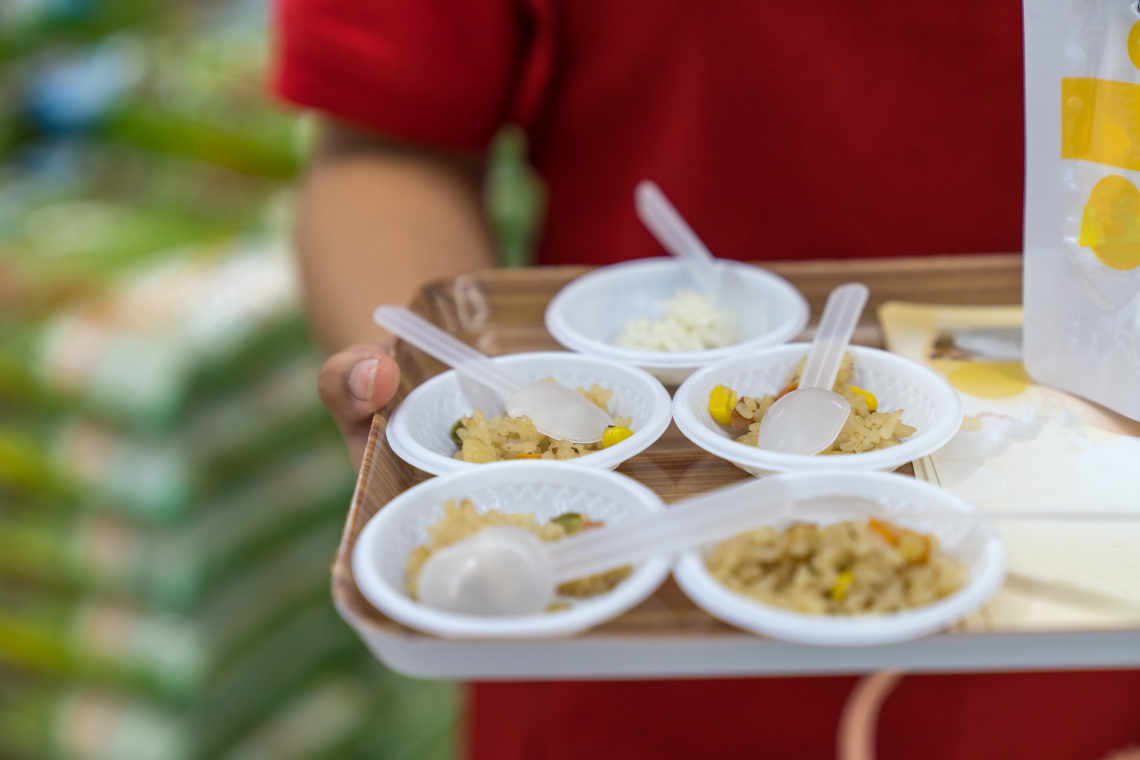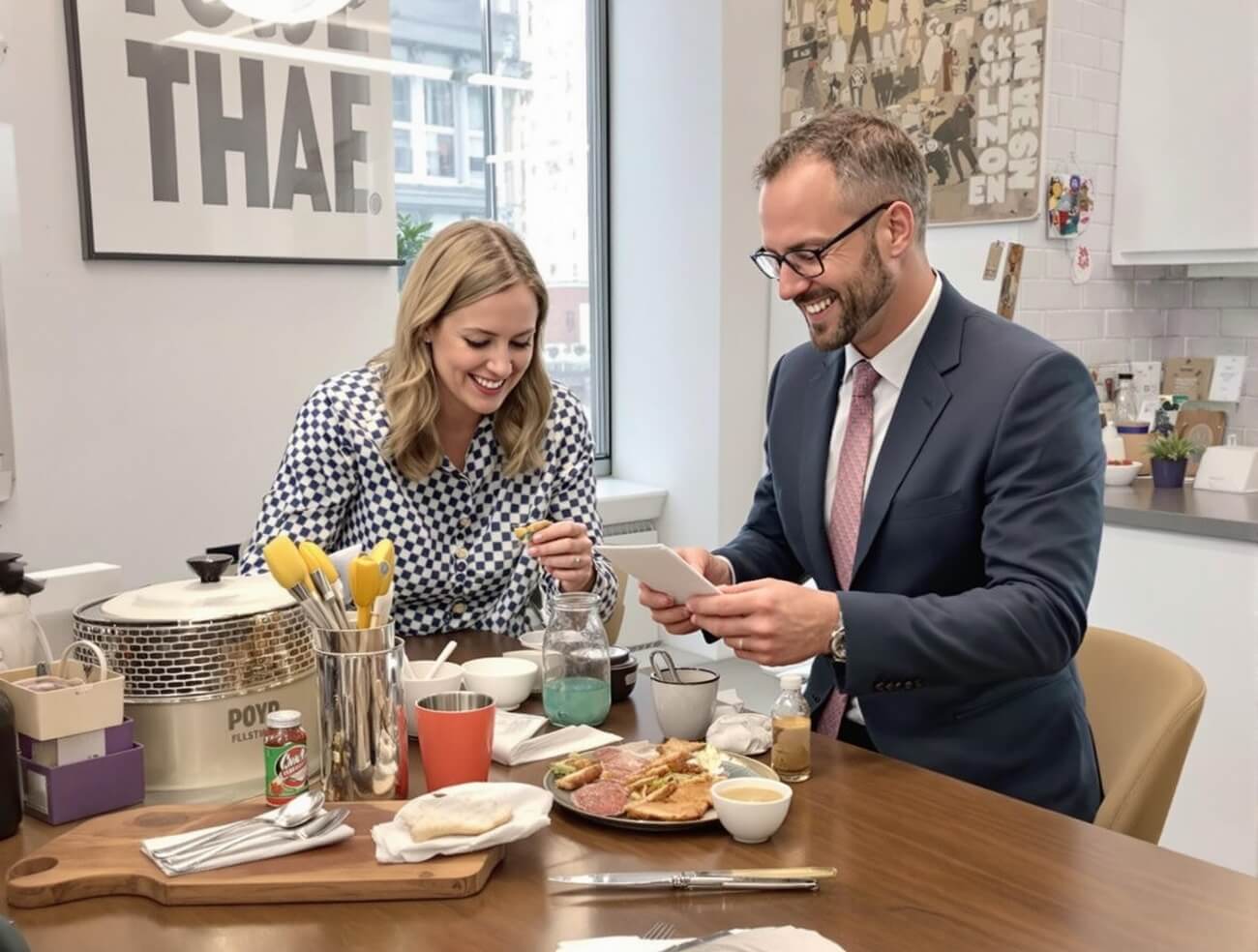Taste Response Test Market Research

In culinary exploration, taste is the key to unlocking consumer satisfaction and market success… But, how can businesses ensure that their products tantalize taste buds and capture hearts? This question lies at the core of the taste response test market research, a powerful tool that unveils the sensory experiences driving consumer preferences.
What Is Taste Response Test Market Research?
Taste response test market research evaluates and analyzes consumer responses to food and beverage products based on taste perception. Unlike traditional market research methods that rely on surveys or focus groups, taste response tests involve direct sensory evaluation, allowing researchers to measure consumers’ immediate reactions to various flavors, textures, and aromas.
During a taste response test, participants are presented with samples of food or beverage products and asked to provide feedback on factors such as taste intensity, flavor profile, mouthfeel, and overall liking. These evaluations can be conducted in controlled laboratory or real-world environments, giving researchers valuable insights into consumer preferences, sensory preferences, and product acceptance.
Why Do Businesses Need Taste Response Test Market Research?

By understanding consumers’ taste preferences and sensory perceptions, businesses can develop products perfectly aligned with market demand. Taste response tests provide precise insights into flavor profiles, texture preferences, and overall liking, enabling businesses to fine-tune product formulations and create offerings that resonate with consumers’ palates.
Moreover, taste response test market research allows businesses to identify unique flavor profiles, innovative ingredient combinations, and sensory experiences that set their products apart. By delivering superior taste experiences, companies can capture consumer attention, loyalty, and market share.
Furthermore, taste response test market research enables businesses to develop products that consistently meet or exceed consumer expectations, strengthening brand reputation and fostering positive word-of-mouth recommendations. However, this market research offers businesses a multitude of benefits, providing actionable insights and driving strategic outcomes, including:
- Accurate Consumer Insights: Taste response tests market research provides businesses with accurate and objective insights into consumer taste preferences and sensory perceptions.
- Optimized Product Formulations: With insights from taste response tests, businesses can optimize product formulations to meet consumer preferences and market demand.
- Early Detection of Market Trends: This market research enables businesses to identify emerging taste trends and flavor preferences before they become mainstream.
- Cost-Efficient Product Development: Conducting taste response tests early in product development can help businesses avoid costly mistakes and later iterations.
- Enhanced Marketing and Branding Strategies: Products consistently delivering exceptional taste experiences can be powerful marketing tools, driving brand loyalty and advocacy.
Expected Results from SIS’s Taste Response Test Market Research

SIS International Research offers comprehensive taste response test market research services to provide actionable insights and drive strategic outcomes for clients. Here are some expected results from engaging with SIS:
- Detailed Sensory Analysis: SIS conducts detailed sensory analysis to provide clients with a deep understanding of taste preferences, flavor profiles, and sensory perceptions among target consumers.
- Consumer Feedback and Insights: SIS gathers direct feedback from consumers through taste response tests, providing clients with valuable insights into consumer preferences, product acceptance, and areas for improvement. SIS helps clients identify strengths, weaknesses, and opportunities for enhancement, guiding strategic decision-making and product development efforts.
- Competitive Benchmarking: SIS conducts competitive benchmarking as part of taste response test market research, allowing clients to benchmark their products against competitors and identify areas for differentiation.
- Strategic Recommendations: SIS delivers strategic recommendations based on data-driven insights and sensory analysis, empowering clients to make informed decisions and drive business growth. From product development and innovation to marketing and branding strategies, SIS provides actionable recommendations to help clients achieve their business objectives and succeed in today’s competitive marketplace.
Technologies and Tools Used in This Market Research
In the modern taste response test market research landscape, advanced technologies and innovative tools are key in enhancing data collection, analysis, and interpretation. Here are some technologies and tools utilized in taste response test market research:
- Sensory Evaluation Software: Specialized sensory evaluation software platforms streamline data collection and analysis during taste response tests. These software solutions allow researchers to design experiments, record sensory evaluations, and analyze results efficiently. Examples include Compusense, FIZZ Software, and EyeQuestion.
- Electronic Tongue and Nose Devices: Electronic tongue and nose devices mimic human taste and olfactory sensations, allowing researchers to assess flavor profiles, aroma compounds, and overall taste perceptions objectively. These devices utilize advanced sensors and analytical techniques to quantify taste attributes and provide valuable insights into product quality and consumer preferences.
- Virtual Reality (VR) and Augmented Reality (AR): VR and AR technologies enable researchers to create immersive sensory experiences for participants during taste response tests. By simulating realistic environments and scenarios, VR and AR enhance consumer engagement and provide researchers with valuable insights into consumer responses to food and beverage products in virtual settings.
- Biometric Sensors: Biometric sensors, such as electroencephalography (EEG), galvanic skin response (GSR), and heart rate monitors, measure physiological responses to taste stimuli, providing researchers with additional data points beyond subjective evaluations. These sensors offer insights into consumers’ emotional arousal, cognitive processing, and physiological reactions to taste stimuli, enriching the understanding of taste perception and preference.
Opportunities in the Taste Response Test Market

The taste response test market presents several opportunities for businesses seeking to innovate, differentiate, and succeed in the food and beverage industry. Here are some key opportunities:
- Product Innovation: Taste response tests provide businesses with insights into emerging taste trends, flavor preferences, and sensory perceptions, enabling them to innovate new products that resonate with consumers.
- Market Expansion: Taste response tests can help businesses identify market expansion and diversification opportunities by exploring new taste preferences and consumer segments.
- Brand Differentiation: Products that deliver exceptional taste experiences can serve as powerful brand differentiators, distinguishing businesses from competitors and fostering brand loyalty.
- Consumer Engagement: Taste response tests allow businesses to interact directly with consumers, gather feedback, and foster a sense of involvement and ownership in product development processes.
How SIS International’s Taste Response Test Market Research Helps Businesses
SIS International offers specialized taste response test market research services to provide businesses with actionable insights and drive strategic outcomes in the food and beverage industry. Here’s how SIS’s expertise can benefit businesses:
- Customized Research Approach: SIS employs a customized research approach tailored to each client’s unique needs and objectives. SIS designs taste response tests that deliver targeted insights and actionable recommendations, ensuring maximum value and impact for businesses launching new products, optimizing existing formulations, and entering new markets.
- Advanced Sensory Analysis: SIS conducts advanced sensory analysis to provide clients with in-depth insights into taste preferences, flavor profiles, and sensory perceptions among target consumers.
- Global Reach and Expertise: With a worldwide network of experienced researchers and sensory experts, SIS offers businesses access to insights from diverse markets and regions worldwide.
- Long-Term Partnership: Our experts foster long-term partnerships with clients, serving as trusted advisors and strategic partners in their journey toward success. By offering ongoing support, consultation, and collaboration, SIS ensures that businesses have access to timely insights and guidance to navigate challenges, capitalize on opportunities, and drive innovation in the dynamic and competitive landscape of the food and beverage industry.
Our Facility Location in New York
11 E 22nd Street, Floor 2, New York, NY 10010 T: +1(212) 505-6805
About SIS International
SIS International offers Quantitative, Qualitative, and Strategy Research. We provide data, tools, strategies, reports, and insights for decision-making. We also conduct interviews, surveys, focus groups, and other Market Research methods and approaches. Contact us for your next Market Research project.


